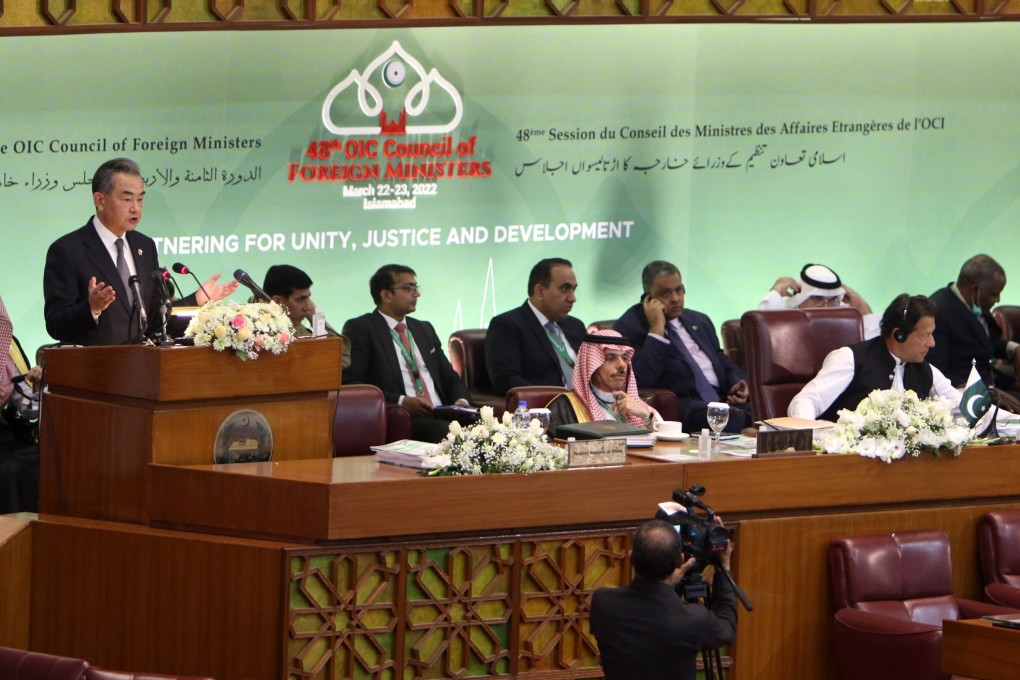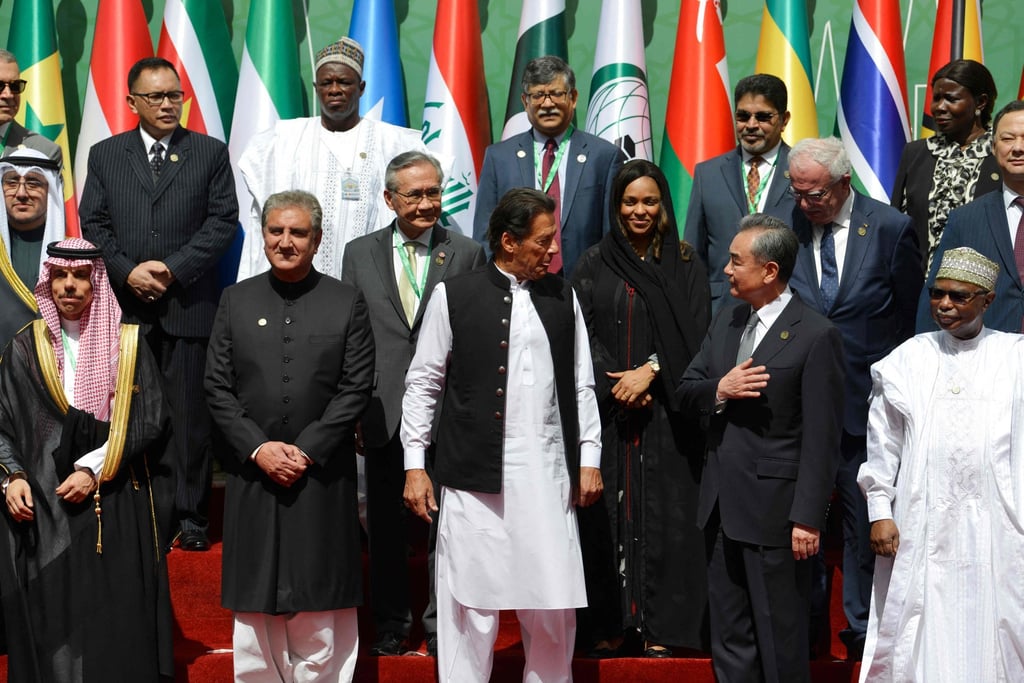Advertisement
China vows support for Islamic wisdom in conflict resolution as US retreats from Middle East
- Foreign Minister Wang Yi asserts China’s support for Islamic world in address to OIC conference as ‘special guest’
- Most Muslim nations have distanced themselves from Western countries that regard China as an enemy, observer notes
Reading Time:3 minutes
Why you can trust SCMP
2

China has vowed to support Islamic nations in their efforts to resolve conflict – including disputes over Kashmir – consolidating its ties in the Middle East as US influence wanes.
The pledge from Chinese Foreign Minister Wang Yi comes as China faces increasing pressure from Western nations – especially the US – to take a tougher stand against Russia over its invasion of Ukraine, and as Washington’s ties with the Middle East face uncertainties.
“China will continue to support Islamic countries in using Islamic wisdom to solve contemporary hotspot issues, and firmly hold the right to maintaining stability and promoting peace in its own hands,” Wang told the Organisation of Islamic Cooperation (OIC) in the Pakistani capital Islamabad on Tuesday.
Advertisement
China will promote the settlement of the Palestinian issue on the basis of the two-state solution, and support Afghanistan to build up an inclusive government, Wang said in his address, according to a Chinese foreign ministry statement.
“On the Kashmir issue, we have heard the voices of many Islamic friends again today, and China has the same desire for this,” he was quoted as saying, referring to the long-standing dispute between India and Pakistan over the Himalayan region, without elaborating further.

India is expected to be the next stop on Wang’s tour of South Asia, with Nepal also on the list, though there has been no official confirmation as yet.
Advertisement
Select Voice
Choose your listening speed
Get through articles 2x faster
1.25x
250 WPM
Slow
Average
Fast
1.25x